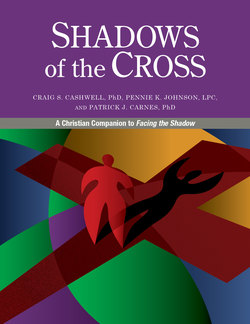Читать книгу Shadows of the Cross - Craig Cashwell - Страница 20
На сайте Литреса книга снята с продажи.
Collaboration with God
ОглавлениеKen Pargament, a clinical psychologist who studies religious coping, has noted that people tend to have one of three primary coping styles. The first, a deferring style, is characterized by the belief that God will deliver you from your struggles and that you need not do anything other than trust this to be true. In this framework, God is the sole problem solver. The second, which Pargament called a self-directing style, is characterized by the belief that God has given you what you need to handle the problem on your own. This is essentially the "God helps those who help themselves" approach. Grounded in extensive research, Pargament has found the third type of coping, which he termed collaborative coping, to be related to the best psychological outcomes. We see references to collaborative coping on car bumper stickers and front license plates that read "God is my copilot." In essence, collaborative coping is thinking of God as a teammate in the problem-solving process. Consider the following examples.
Jasmine used a deferring style of coping unsuccessfully:
Jasmine is a young Christian woman who has a long history of one-night stands and occasional swinger parties, both of which leave her feeling a deep sense of shame and regret. She repeatedly prays that God will deliver her from her behavior and vows to God that she will never do such things again, only to break this promise shortly after. At the request of her pastor, she attends a Christian Twelve Step meeting and tells the group that she refuses to call her behavior an addiction because "that sounds so permanent and I know that God will deliver me from this." She refuses to work the Twelve Steps or get a sponsor, stating, "If I do all of that, I am acting like this is in my control. God is in control and will save me from this." Jasmine continues to act counter to her values and soon drops out of the Twelve Step group because she fears judgment from others in the group.
Paul used a self-directing coping style unsuccessfully:
Paul is a highly religious man who served as a deacon in his church. Paul's wife discovered he was using pornography after he had promised twice before to discontinue this behavior. Each of the first two times, Paul went through the motions of couples therapy with his wife "to get her to calm down and get her off my back." Paul was in a profession where he managed other people and situations. He also worked hard to control his image and "manage" his wife's emotional responses. He acknowledged to his wife that he had a problem but continued to assure her that he was serious about stopping and did not need a therapist or a support group because "I can handle this myself." Yet, without the support and coping resources provided in therapy and support groups, Paul was soon secretly using pornography again.
James used collaborative coping successfully for long-term sobriety:
James, age fifty-eight, has served in his church in many capacities. He has also struggled with pornography use and one-night stands for much of his adult life. He feels great shame over his behavior and has questioned whether he can truly be a Christian with his long history of sexually acting out. He reached his "rock bottom" after going to an adult bookstore and masturbating while he knew he was being watched. As he walked out of the bookstore, he saw one of his church members walking along the street. Although the church member did not see him, this raised James's awareness of how bad his problem was. He started going to therapy and a Twelve Step group his therapist recommended. He soon found a sponsor and began to work the Steps as well as continuing to see his therapist. He was deeply moved by the words of the Serenity Prayer and began to meditate on it. Each day, he now prays for wisdom to discern what he can control in his recovery process and what he cannot. He prays for courage to change what he can and serenity for those things he cannot change.
Reflect on the following questions to understand how you can better collaborate with God in your recovery:
1.Do you ever find yourself praying to stop your addictive behaviors but failing to follow through on recovery-related behaviors?
2.Does someone in your life supply you with verses and prayers believing that God will "take this sin" from you? How does this affect your personal recovery program?
3.Do you ever find yourself in an "I've got this" mentality where you believe you can control or manage your addiction without the help of God and other people?
There are some active tasks you can do to help you in your recovery. There are other things, however, that are beyond your control. To distinguish between these two takes wisdom. This process of collaborating with God is captured eloquently in the Serenity Prayer.
